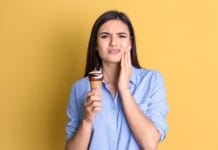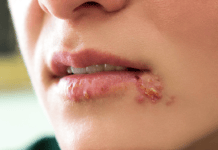Dentistry as a whole can often bring about anxiety and stress for many patients. This anxiety does not just occur when restorative work needs to be addressed, but for many, the idea of a “routine cleaning,” as well as any kind of periodontal maintenance treatment, can induce high anxiety and stress. Some people will avoid scheduling dental procedures until they reach a state of emergency and allow pain to be their motivator.
I happen to work in a sedation office which caters to such anxieties. Each operatory has nitrous oxide available to ease patients’ fears and anxieties, and help them get through their dental appointment. Many of these patients have had previous negative dental experiences which are embedded in their memory. Offering sedation options, such as nitrous oxide, allows patients to relax those fears and build a solid relationship with our office. They are thankful to be able to get through their appointed dental procedure and gain health and trust.
I was surprised to find out from a patient that nitrous oxide can contribute to vitamin B12 deficiency. Why on earth had I never been informed of this? I am nitrous oxide certified and had no clue about this correlation. Blissful ignorance is not excusable, so I researched the topic on Google Scholar and found out that my patient was indeed right!
In one study, two of three dentists exposed to routine occupational nitrous oxide had abnormal white cells in their peripheral blood cells. This particular study shows evidence of vitamin B12 deficiency resulting in bone marrow changes and impaired synthesis of deoxyribonucleic acid (DNA), which is important in the growth, development, function, and reproduction of all living organisms.1 DNA is basically the building block for life. Vitamin B12 plays a major role in our central nervous system (CNS) health. Over time, vitamin B12 deficiency can lead to fatigue, anemia, and nerve damage. It is also integral to the regeneration of red blood cells.
Some factors which put you at risk of becoming vitamin B12 deficient are: being over 50 years old, being a vegan or vegetarian, having Crohn’s or celiac disease, digestive tract surgery, taking metformin or acid-reducing medications, depression, regular consumption of alcoholic beverages, and pernicious anemia.2 These are conditions we see regularly on health histories, so it is important to notice and inform our patient of the real risk of becoming vitamin B12 deficient with the use of nitrous oxide for dental procedures.
Patients who present with vitamin B12 deficiency, and then are exposed to extended periods of nitrous oxide, can become severely depleted of vitamin B12, which could result in neurological disorders, peripheral paresthesia, even dysfunction of bowel or bladder. Most patients who are vitamin B12 deficient are most likely not aware of it. We are born with a set amount of vitamin B12; however, replacing vitamin B12 takes a long time for the body to re-establish.
Another angle is nitrous oxide abuse, which can go undetected, as young people may use “whippit” inhalants to get a high and unknowingly have systemically depleted their vitamin B12. Now they present at the dental office requesting nitrous oxide sedation for dental work and unknowingly may become dangerously deficient in B12. Myeloneuropathy can present with numbing and tingling in hands and feet. It is a spinal cord and peripheral disease which is caused by inactivation of vitamin B12 by nitrous oxide.3
The science is there, so we need to heed the warning and inform our patients of this real possibility of neurological disorders related to nitrous oxide enhancing vitamin B12 deficiency. Perhaps patients should be advised to seek approval from their physicians and/or take vitamin B12 supplements one or two weeks prior to and following dental procedures which involve nitrous oxide inhalation.
As healthcare professionals, we too should take additional B12, or at least get blood work done to check our B12 baseline. I do not have the answers, but I do have the initiative to encourage you to become better informed on this correlation. Perhaps an informed consent advising dental patients of the dangers nitrous oxide could pose should be a standard of care for every dental office.
Before you leave, check out the Today’s RDH self-study CE courses. All courses are peer-reviewed and non-sponsored to focus solely on pure education. Click here now.
Listen to the Today’s RDH Dental Hygiene Podcast Below:
SEE ALSO: Periodontal Inflammation Linked to Vision Loss
DON’T MISS: Medical History: Your Patient is Not Telling You Everything
References
- Sweeney,B., Bingham,R. M., Amos, R. J., Petty, A. C., Cole, P. V. Toxicity of Bone Marrow in Dentists Exposed to Nitrous Oxide. Br Med J (Clin Res Ed). 1985; 291:567
- Food and Nutrition Board, authors; National Research Council, editor. Dietary Reference Intakes for Thiamin, Riboflavin, Niacin, Vitamin B6, Folate, Vitamin B12, Pantothenic Acid, Biotin and Choline.National Academy Press; Washington, DC, USA: 1998. Institute of Medicine, Vitamin B12; pp. 306–356.
- Pema, P.J., Horak, H.A., Wyatt, R.H. Myleopathy Caused by Nitrous Oxide Toxicity. American Journal of Neuroradiology. May 1998, 19 (5) 894-896












